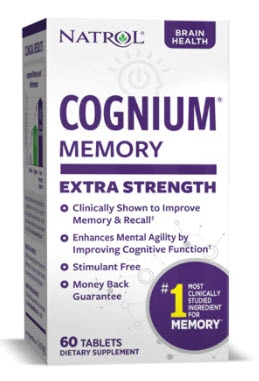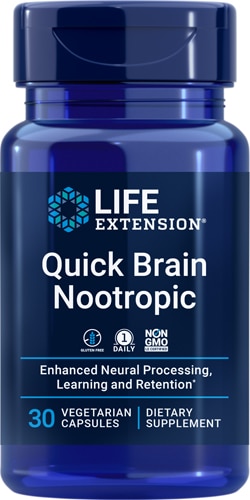Exercise is known as a panacea for preventing and, in some cases, even helping to treat some medical conditions related to physical and mental health. More and more research points to exercise being fundamental for healthy aging and brain functioning, including improving
memory and slowing cognitive decline.

With one in five people aged 65 and older likely to experience some degree of memory loss or cognitive impairment, which can progress to more serious forms of cognitive decline such as dementia and Alzheimer’s, understanding how something as accessible as increasing your activity can help is vital, not to mention empowering.
Being able to beneficially influence your brain functioning is a powerful thing and helps you feel less at the mercy of Father Time’s ticking clock.
The research on exercise and cognitive function
Many factors contribute to cognitive health, but healthy lifestyle choices, including exercise, stand out for providing protective effects. For instance, a study published in the
Journal of the American Medical Association revealed that factoring in genetic risk, those who participated in healthy lifestyle activities, including consistent physical activity, had a 300% reduced risk of developing dementia than their less healthy counterparts.
Regular exercise a few times per week of
as little as 10 minutes per day protects against cognitive decline and memory loss. The research shows that participating in 70 to 150 minutes of weekly activity, like increasing your step count, leads to sharpened cognition for older generations.
Additional
research has shown that 30 to 40 minute moderately brisk walks taken 3 to 5 days per week had greater blood flow to their brains. Researchers can’t say for sure but theorize that this additional blood flow likely positively influences memory.
Evidence from these studies suggests that exercise boost levels of neuroprotective growth factors, foster the formation of new brain cells and may reduce
inflammation in the brain—pretty powerful stuff.
Exercises for memory and brain function
As you can see, the research is clear that even a simple walking regimen of as little as 10 minutes per day or up to 30 minutes and beyond can do wonders for your cognitive health; it’s unmistakable that bolstering your chances of being sharp as a tack in your twilight years is not that difficult.
No hours spent sweating in the gym are necessary—although strength-building workouts provide a bevy of healthy aging benefits on their own,
including for joint health and reduced risks of several diseases.
However, there are more options than just walking available for you to choose from in your efforts to boost memory and brain health.
Cardiovascular activities for memory and more
The best
cardiovascular activities are ones that you can commit to and stay consistent with. For the best chances of that, choose something you really enjoy. Moderate to vigorous exercise is ideal for many reasons, including increasing blood flow to your brain and the release of endorphins—feel-good chemicals in your brain. Try the following:
Hiking: Not only does hiking get your heart rate up, but it also requires concentration and focus, improving cognitive skills. What’s more, getting outdoors has been shown to provide
several additional benefits for mental wellbeing.
Jogging: Jogging increases blood flow while also providing some impact to your bones, which
builds healthy bones and protects against bone loss.
Cycling: Cycling can provide a low-impact activity that’s easier on the joints while still helping you get in your weekly exercise.
Swimming: Swimming is unique in that it provides protective brain-boosting effects beyond other types of activity. Researchers aren’t exactly sure how, but studies show that
swimming improves memory,
cognitive function,
mood and even
immune system activity. Beyond that, swimming seems to help
build new neural connections in the brain.
Balance training
Balance training has a particular impact on brain functioning and healthy cognition. Multiple
studies have found that balance training leads to improvement in memory and spatial awareness. One interesting factor from this research is that cardiovascular activity—which might not be doable by some undertrained or older individuals—isn’t necessary to see these benefits.
In place of other types of activity, balance training offers a way to boost cognition, build strength, and also helps to prevent potential injuries from falls.
Researchers believe that stimulating the vestibular system—the part of the inner ear involved in keeping your balance creates changes in the hippocampus and parietal cortex—both areas of the brain involved in memory and sensory processing.
Skill-based training
Learning new skills in general, whether physically based or not, can help stimulate your brain and encourage new connections that prevent memory loss and cognitive decline. Trying new workouts and exercise routines can double up on your efforts to boost brain health.
Whether you learn new
strength training movements, participate in a new skill-based sport like soccer, skating, water polo, or tennis, or even attend a local fitness class learning the steps to a Zumba dance or cardio kickboxing moves, these new types of activity require focus which
stimulates brain activity.
Featured Product

 With one in five people aged 65 and older likely to experience some degree of memory loss or cognitive impairment, which can progress to more serious forms of cognitive decline such as dementia and Alzheimer’s, understanding how something as accessible as increasing your activity can help is vital, not to mention empowering.
Being able to beneficially influence your brain functioning is a powerful thing and helps you feel less at the mercy of Father Time’s ticking clock.
With one in five people aged 65 and older likely to experience some degree of memory loss or cognitive impairment, which can progress to more serious forms of cognitive decline such as dementia and Alzheimer’s, understanding how something as accessible as increasing your activity can help is vital, not to mention empowering.
Being able to beneficially influence your brain functioning is a powerful thing and helps you feel less at the mercy of Father Time’s ticking clock.




